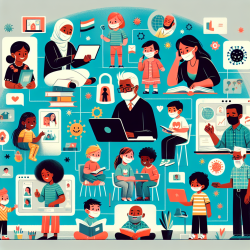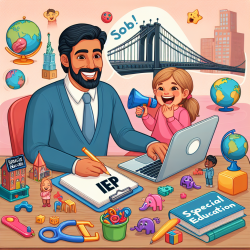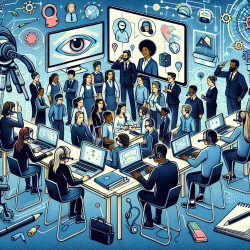Introduction
The COVID-19 pandemic brought unprecedented challenges to education systems worldwide, prompting a sudden shift to remote learning. A research study titled "Effects of Remote Education During the COVID-19 Pandemic on Young Children's Learning and Academic Behavior in Georgia: Perceptions of Parents and School Administrators" provides valuable insights into the impact of this transition. This blog explores the study's findings and offers guidance for practitioners seeking to enhance their skills and adapt to the evolving educational landscape.
Understanding the Impact
The study conducted in Georgia involved qualitative research with school administrators and essential working parents of children in kindergarten through third grade. The findings revealed significant declines in student learning and academic behavior due to remote education. The barriers identified included lack of Wi-Fi, inadequate technology, and limited digital literacy. These challenges were particularly pronounced among vulnerable populations.
Key Takeaways for Practitioners
- Enhance Digital Literacy: Practitioners should focus on improving digital literacy among students and parents. This can be achieved through workshops and resources that teach basic technology skills and online learning tools.
- Address the Digital Divide: Efforts must be made to ensure equitable access to technology and the internet. Schools and districts can collaborate with local governments and organizations to provide devices and internet access to underserved communities.
- Support Vulnerable Populations: Special attention should be given to students from vulnerable groups, including those with disabilities, low-income families, and non-native English speakers. Tailored support services and resources should be made available to address their unique needs.
- Foster Communication and Collaboration: Strengthening communication between educators, parents, and students is crucial. Regular virtual meetings and feedback sessions can help address concerns and improve the learning experience.
Encouraging Further Research
While the study provides valuable insights, it also highlights the need for further research to understand the long-term effects of remote education. Practitioners are encouraged to participate in ongoing studies and contribute to the development of effective strategies for remote and hybrid learning environments.
Conclusion
The transition to remote education during the COVID-19 pandemic has underscored the importance of adaptability and innovation in education. By implementing the findings from this study, practitioners can enhance their skills and better support students' learning and development. To read the original research paper, please follow this link: Effects of Remote Education During the COVID-19 Pandemic on Young Children's Learning and Academic Behavior in Georgia: Perceptions of Parents and School Administrators.










